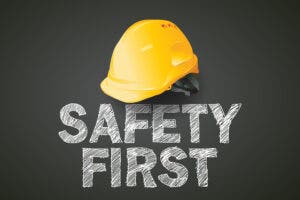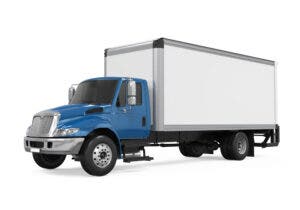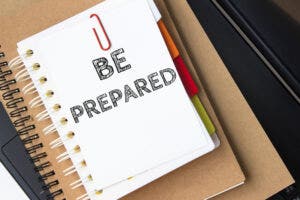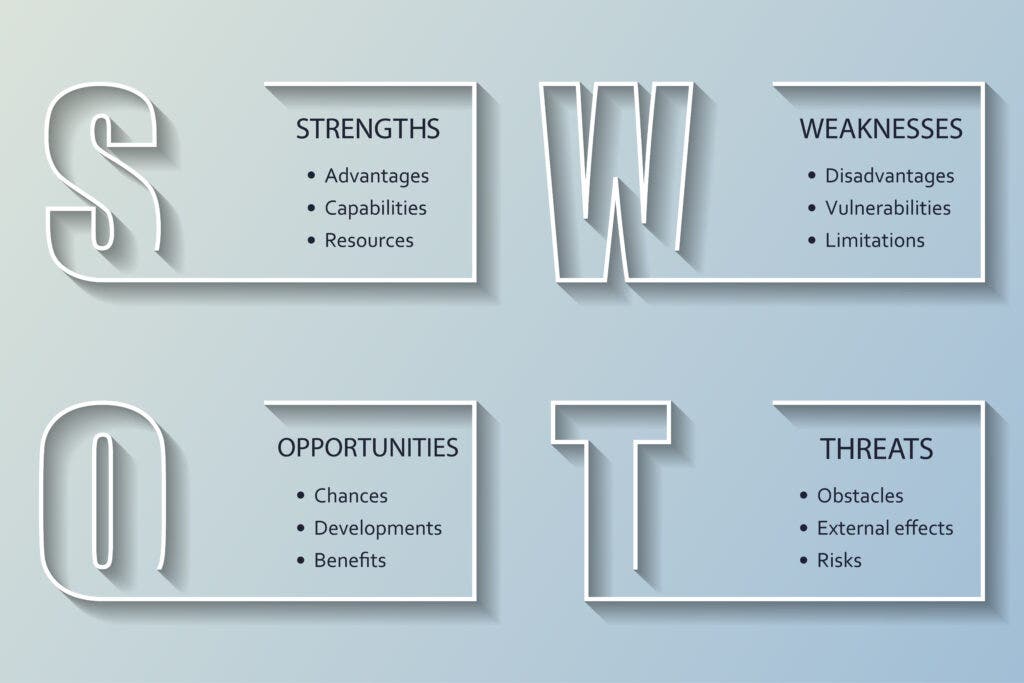Part IV - Managing Your New Event and Party Rental Company
Let’s Go Over Some Business Organization and Management Basics
Now it’s time to start getting into the meat and potatoes of owning your new event and party rental business. How you manage your staff, track critical data, and handle other business matters will make or break your fledgling small business. But with a little preparation and some additional learning, we can eliminate most, if not all, of that risk.
Organizing and managing your business is inarguably the most important aspect of owning a business. After all, what good are all those customers you found back in part three of this series if your company isn’t fully prepared to offer them excellent, comprehensive service?
In this section of our series explaining how to start an event and party rental business, we’re going to talk about the actual day to day operation of your business. Let’s talk about safety, keeping your company organized, maximizing efficiency, fostering a healthy work environment, and more.
Safety First!
 We need to address the importance of safety right from the start, and it’s a point we cannot stress enough. Safety needs to permeate everything your business does on a daily basis, and it’s not something you should ever phone in. Having strong safety standards doesn’t just protect customers and employees, but the entire business itself. A party rental company that skimps on safety measures isn’t likely going to stay in business very long.
We need to address the importance of safety right from the start, and it’s a point we cannot stress enough. Safety needs to permeate everything your business does on a daily basis, and it’s not something you should ever phone in. Having strong safety standards doesn’t just protect customers and employees, but the entire business itself. A party rental company that skimps on safety measures isn’t likely going to stay in business very long.
Your number one goal each and every day should be maintaining the safety of your customers and their guests, your staff, and yourself. When you’re thinking about any facet of your party rental company’s daily operations, safety should be placed front and center.
Some safety measures you’ll want to include:
- Keeping insurance up to date
- Fully training new staff on setups, teardowns, cleaning, maintenance, and warehouse safety protocols
- Ensuring your rental equipment is well maintained and repaired as needed
- Replacing worn units with new ones (you can always sell used equipment after seeing ROI)
- Cleaning your equipment daily, or after each use
- Setting up every piece of equipment properly, without skipping any steps
- Securing equipment and accessories firmly in your vehicle during transportation
- Keeping your warehouse facility clean and well organized
- Providing employees with equipment that protects them physically, like hard hats, safety glasses, and face masks
- Equipping staff with tools that minimize the risk of physical injury; use tent stake drivers instead of sledgehammers when applicable, and keep tent jacks and stake extractors on hand as well
- Instructing staff to drive company vehicles carefully and observe traffic laws, even when they’re in a hurry
- Recording safety incidents and learning from any mistakes that led to them
The Traditional Busy and Slow Seasons of Party Rentals
Now let’s turn our attention to the calendar. It’s important when planning, organizing, and managing your business to understand when you should expect the most customers, and when to expect things to slow down. And it’s helpful to know how to get the most value out of those busy and slow seasons, too.
Your busy and slow seasons will heavily depend on geography and regional climate. If you live in a northern state with four seasons like New York, Illinois, or Washington, you’ll have a shorter busy period than someone in warmer southern states, like Florida, Texas, Arizona, or southern California. And many of those southern regions may not be forced to halt business at all during the year.
As a rule, you should expect business to boom in warmer weather, from 65 and up. Below 65, things will probably slow down. The colder it gets, the less business you’ll see. And that’s okay; you don’t want to set up your commercial inflatables and party tents in cold weather anyway. Vinyl runs the risk of cracking and ripping in temperatures below 40 degrees fahrenheit.
Of course, if you’ve diversified your rental equipment inventory with equipment that can be set up indoors, you’ll still bring in some business during the winter. Just don’t expect it to be anything like you earn from mid spring through mid fall. A lot of consumers don’t consider party rentals in colder months.
It’s not a bad idea to shift your marketing focus in cooler weather toward organizations with lots of indoor spaces. Schools, churches, youth centers, and companies setting up at trade shows are often good sources of business from late fall through early spring.
Keeping Track of Business Vitals with Spreadsheets
Your business is going to process a lot of data and information. It’s not just receipts and invoices, either. In a given week, you’ll be handling customer contact information, monitoring your inventory, and so much more. And keeping track of all this information is difficult if done incorrectly.
 Spreadsheets can be used to track just about everything a business should care about. Keeping spreadsheets accurate, updated, and detailed helps nearly every aspect of your business, from securing business loans to managing staff to handling your taxes. And there are huge benefits for your marketing strategy, too!
Spreadsheets can be used to track just about everything a business should care about. Keeping spreadsheets accurate, updated, and detailed helps nearly every aspect of your business, from securing business loans to managing staff to handling your taxes. And there are huge benefits for your marketing strategy, too!
Remember when we mentioned Google Sheets back in part three of this series? This is where you’ll want to put that tool to use. It’s a free platform with mountains of useful features, and it’s pretty easy to use, too. Read this beginner’s guide to using Google Sheets and you can get started with it today.
Google Sheets can be accessed from anywhere, on nearly any computer, smartphone, or tablet. Multiple people can access the same spreadsheet simultaneously and make edits in real time, together. And you can download Google Sheets spreadsheets to any of those devices in any of the popular file formats. All of that is true of Google Docs, too. We highly recommend it!
Essential Spreadsheets Every Business Needs to Keep Updated
In the very least, you’re going to want to create spreadsheets for tracking all of the following information:
- Balance sheets, with income and expense tabs
- Receipts/ invoices, along with customer names, prices, dates booked, dates paid, etc.
- Rental equipment inventory, with fields for equipment condition, last rental, number of rentals, total revenue earned to date, what you paid for that equipment, etc.
- A customer database with names, contact information, and more
- Employee information, such as names, phone numbers, hiring dates, starting dates, pay rates, home addresses, and email addresses
- Employee schedules
- Equipment maintenance; when the unit was last cleaned or repaired, and who handled it
Don’t forget to make backups of all your spreadsheets regularly. Google’s cloud storage system, Google Drive, is safe and secure, but it’s always a good idea to keep a hard backup of important files regardless. Schedule a monthly reminder and spend a few minutes each month downloading important files and storing them on a CD-R, USB drive, or some other medium.
Crafting a Brilliant Customer Experience
We talked a lot about earning positive reviews earlier in this series, and this is where the rubber meets the road. Positive customer experiences not only inspire better reviews, but lead those customers to return to your party rental company for their future needs.
Crafting a brilliant customer experience is something some businesses apply a lot of effort toward, and that work does pay off. It’s not enough to get customers through the door and greet them with a smile. You should strive to ensure every interaction your customer has with your business leaves them feeling not only satisfied, but eager to give you a call again.
Customer satisfaction goals can be woven into the very fabric of your party rental company, and it’s worth applying some real thought to. For instance:
- How will you coach staff on dealing with customers, and what policies will you set for those interactions?
- What protocol is followed when a customer contacts your business?
- What resources are available to employees when they’re resolving a customer’s issue? Can they offer discounts, give refunds, or void deposits?
- Will you offer special deals to repeat customers?
- What happens when a customer refers a friend to your business?
What Happens When You Make a Sale?
 Here’s another question: how will your company handle financial transactions? How will you accept and process payments, and what forms of payment will you accept? And should you need to issue a refund, how will that work?
Here’s another question: how will your company handle financial transactions? How will you accept and process payments, and what forms of payment will you accept? And should you need to issue a refund, how will that work?
These questions probably seem straightforward. But all of them need to be answered thoroughly in your business plan, and they’ll have major impacts on the day to day operation of your business, too.
Accepting cash, processing card payments, or allowing customers to pay with checks and money orders all have their own pros and cons, as we explain in this blog about accepting various payment methods. Deciding which forms of payment you’ll accept and which ones you’ll reject will have lasting impacts on your business, so give this topic some serious thought.
Keeping with your efforts to provide a stellar customer experience, you’ll want to figure out when to get paid, too, and how to handle deposits. Do customers pay in advance or after the event? What percentage of the total costs will the deposit be, and when exactly can customers cancel to get a full refund of that deposit?
You’ll want to make the process of taking payment as simple as possible for customers and staff, but without exposing yourself to unnecessary financial risk or stress. And some methods of accepting payment are coupled with additional expenses, too. Taking credit card or debit card payments, for instance, will cost you a percentage of each transaction.
Know Your Local Laws and Ordinances
Most people aren’t well versed in local and state laws or ordinances, especially the ones that impact small businesses. And there’s of course no way we could realistically list off every local, state, and federal law nationwide that could impact an event and party rental company. So this will be yet another research project for you to complete on your own.
Different municipalities, counties, and states will have their own laws and ordinances regulating your party rental company.
While we can’t tell you what the laws are like where your business will be operating, we can at least tell you about some of the more common laws found around the country. These laws may or may not apply to your business. Research local, county, and state laws to know for sure!
Some common regulations and laws include:
- Permit requirements. You may need an operating permit for inflatables and tents, even on private property.
- Liability insurance requirements. Many towns, counties, and states have liability insurance requirements. Though you should have liability insurance anyway, of course.
- Equipment Inspections. Your equipment may need to undergo some form of inspection, either once or annually.
- Incident Transparency. You may be required to report safety incidents and accidents to the local or state government, or even directly to customers.
- Observing ASTM Standards. ASTM International (formerly known as the American Society for Testing and Materials) is an organization that researches and creates technical safety standards for everything from ski bindings to jet airliners. Some areas have laws requiring rental equipment meet ASTM standards.
Physical Property You’ll Need to Lease (or Buy)
 Some of you might have a garage or a shed where you can store a few commercial inflatables and party tents. But a successful, growing party rental company is going to need warehouse space to stockpile its equipment, and that’s going to put a serious dent in your monthly expenses.
Some of you might have a garage or a shed where you can store a few commercial inflatables and party tents. But a successful, growing party rental company is going to need warehouse space to stockpile its equipment, and that’s going to put a serious dent in your monthly expenses.
You’re going to need a reasonably sized warehouse, large enough to store not only the rental equipment you’re starting out with, but the equipment you’ll get when your business expands. You’ll want a dedicated office space, too, though this could just be set up in your home at first.
Most warehouses in the United States come with what’s known as a triple net lease (or “NNN”). It’s a fancy way of saying you, the leasee, will be responsible for not just the monthly or yearly lease payments, but also the utilities—electricity, water, gas, trash removal, etc. Some local or state laws, as well as property owners, may also require your warehouse be insured as well. We strongly encourage you to protect your business with property insurance.
Choosing the Right Vehicle for Your Party Rental Company
 Getting your equipment from your warehouse to your customer’s setup location is going to require transportation. You’ll need a reasonably sized van or truck to get the job done. And making sure you buy the right vehicle is yet another important matter you’ll want to take into consideration.
Getting your equipment from your warehouse to your customer’s setup location is going to require transportation. You’ll need a reasonably sized van or truck to get the job done. And making sure you buy the right vehicle is yet another important matter you’ll want to take into consideration.
Most of you aren’t made of money, so you’ll be looking at buying a used commercial vehicle. But just how used is too used? You want to save money, but at what point does frugality turn into injury?
You need a reasonably sized commercial van or truck suitable for your party rental company. You'll want that vehicle to be safe, and you don’t want a rust bucket that breaks down constantly and costs you more money than it’s worth.
You don’t want to use a truck with an open top bed or flatbed, either. You want your equipment to stay safe from weather, road debris, and wind. That old pickup simply isn’t going to cut it.
Hiring Staff: Employer Identification Numbers and Taxes
Understanding how to find, hire, and manage staff is going to matter, either out of the gate or in the near future. And as you can surely imagine, there’s a lot that goes into having employees on your payroll.
In order for your company to legally hire employees, you first need to establish an employer identification number, or EIN. Think of your EIN as a sort of social security number for your business. It’s distinct to your party rental company; no other company will have the same EIN. It even has nine numbers, just like a social security number.
If you’re creating an LLC or a corporation, you’ll get an EIN during that process. Otherwise, you’ll need to create an EIN, which can be done for free using Square’s EIN wizard or by applying on the IRS website.
As for taxes, you’ll need to complete a W-2 form for each employee, while your employees themselves need to complete a W-4. You’ll also need to find information on state taxes where you live and complete the necessary forms and paperwork to file those, too.
Let’s Find Some Employees for Your Party Rental Company!
 Once you’ve got your EIN and tax stuff squared away, you can start thinking about how you’ll hire people. And that begins with crafting well worded job listings that get results. We’ve all seen job listings before, on job search websites like Glassdoor, Ziprecruiter, and Indeed. But applying for a job and hiring someone for a job are two very different things.
Once you’ve got your EIN and tax stuff squared away, you can start thinking about how you’ll hire people. And that begins with crafting well worded job listings that get results. We’ve all seen job listings before, on job search websites like Glassdoor, Ziprecruiter, and Indeed. But applying for a job and hiring someone for a job are two very different things.
Your job listing needs to clearly state the job title, define the parameters and working conditions, and list your expectations of the employee. You also want to describe any perks the job offers, including pay and benefits.
Try to keep the listing gender neutral and open to as many applicants as possible. Be sure to avoid any topics that aren’t directly related to the job. You also want to make sure the listing is free of typos and spelling errors.
Most of you will be looking to hire manual laborers who can regularly and safely lift heavy equipment. You’ll want candidates with a clean driving record, too. Experience working with customers is a definite plus, since they’ll be interacting with clients and their guests of all ages.
When your listing is ready, you can submit it on websites like the ones we mentioned earlier. You could also put a listing in your local newspaper. Publishing a job listing will almost always cost you money, but it’s worth it if you find a great candidate who will work hard and stay professional.
Staff Management and Employee Policies
Once you’ve found your employees, you’re going to need to establish some ground rules for them, as well as procedures to follow while on the job. Employee policies should include conduct, hours, safety, pay, disciplinary actions, and more.
Will your company have a dress code? What safety procedures will be put in place, and how will you enforce them? Will your employees earn annual raises, and if so, how much does their pay increase? How will you train your staff, and how often will that training happen? Will your company have sick leave, parental leave, and vacation days?
Payroll can present challenges, too. Ensuring everyone is paid accurately and on time, and that you’re tracking payroll for tax purposes, can be a grueling chore. Thankfully, there are payroll services you can use to avoid all of that mess … for a fee, of course.
Our best advice for staff management is the same advice my mom gave me when I was a kid. Treat people how you yourself want to be treated.
Think about the good and bad experiences you’ve had working for other companies. What did you like and dislike about a particular manager or supervisor you had? How did their actions affect your productivity, and the company’s bottom line?
Happy employees almost always directly translate into happy customers. Treat your staff right, and they’ll come to work happy and eager every day. Congratulate them when they do good work. Get to know them and know what’s happening in their lives. Ask what can make their jobs better. Great management pulls staff by leading. They don’t push by ordering.
Lawyers and Accountants
No one likes lawyers. Sorry to any lawyers reading this, but I’m not telling you anything here you didn’t already know, right? And at some point, your party rental company is going to need legal representation.
Incorporation, contracts, employee matters, liability issues, lawsuits … there are lots of reasons your small business will need legal representation at various stages. And finding a good lawyer you can trust can be challenging.
The best way to avoid needing a lawyer is to prevent problems before they happen. That’s easier said than done, of course. But there are some common sense ways you can go about this:
- Do everything you can to maximize safety for customers, their guests, and staff
- Avoid hiring and workplace discrimination
- Coach staff on harassment and clearly lay out strong guidelines to follow
- Post important notices from the Labor Department and other government agencies
- Keep up to date with every type of insurance your business needs
- Make sure your company is observing local, state, and federal laws at all times
You’ll also need professional accountants to help when dealing with taxes. Your business taxes will be a lot more complicated than your personal taxes; don’t try tackling this without professional help.
Accounting services can be useful all year round, too. They can organize and manage financial data, analyze balance sheets, forecast profits, and more. These services can be pricey, but accountants can save you a lot of money in the long run and help you strategize for stronger profit margins. It’s worth at least communicating with accounting services and seeing what they can offer.
It’s Never Too Early to Start Networking!
Your business can certainly exist and be profitable on its own. But why do that when you have other businesses in your area—businesses you aren’t directly competing with, even—that present mutually beneficial business opportunities?
The event and party industry is huge. There are all sorts of adjacent businesses you can and should establish strong ties with. Businesses that offer services and products your own business doesn’t. And working closely with them can have all sorts of benefits.
A friendly business can recommend your services to their customers. You can trade advice and experiences with fellow small business owners familiar with your area, your customer base, and your competitors. Some companies even team up to create special package deals and shared marketing efforts to bring in customers as a team.
A few examples of businesses you should try to establish ties with include:
- Caterers, including restaurants and bakeries that offer catering services
- Event and party planners
- Wedding planners
- Rental halls
- Family Entertainment Centers (FEC’s)
- Churches, schools, parks, and other nonprofits and government organizations
It’s a good idea to exchange your business card with owners or managers from these companies, and then try to communicate your interest in building a working business relationship down the road. Networking can create a lot of great opportunities and it’s definitely worth a try!
Crisis and Disaster Planning
So far, we’ve covered a lot of topics you can and should plan for. But what about those unwanted surprises you can’t anticipate? Will an unforeseen crisis or disaster sink your party rental company, or have you taken some steps to mitigate catastrophe?
There are lots of different types of disasters that can harm or even destroy an ill-prepared small business. So it only makes sense for your party rental company to do what it can to minimize risks, create contingency plans, and prepare staff for emergency situations.
A crisis or disaster might include:
- Natural disasters and acts of god (tornadoes, wildfires, hurricanes, earthquakes, etc.)
- Thefts and break ins
- Vandalism of property, vehicles, and/or equipment
- Fire
- Natural or accidental flooding

Disasters aren’t usually predictable, and they’re oftentimes not entirely preventable either. But a little bit of planning and some preventative measures can go a very long way toward ensuring a disaster doesn’t bring your entire business down with it.
You should keep flashlights, fire extinguishers, and first aid kits in accessible areas, both at your warehouse and in your company’s vehicles. Important paperwork and files should be backed up and kept in multiple locations. Cash should be immediately deposited, too.
For more information on disaster planning and crisis management, we strongly encourage you to review FEMA’s natural disaster checklists and implement their suggestions, both in your business plan and after you open for business.
Your Party Rental Company Can Benefit from SWOT Analysis

Some of you reading this have seen a SWOT analysis already. They’re quite popular, especially in office settings. A SWOT analysis is a simple, quick method of identifying your company’s strengths and weaknesses and creating actionable bird’s-eye information you can put to use instantly.
“SWOT” is short for strengths, weaknesses, opportunities, and threats. It’s an easy project where you name off factors impacting your business that fall into those four categories. And it’s something some investors and loan officers will be very happy to see included in your business plan.
“Strengths” are things you and your business are good at. Work experience that will prove useful for this new business, or having lots of startup funds, or having strong reviews are examples of strengths.
“Weaknesses” are areas you come up short in. Bad credit might be a weakness, or lacking web design skills with which you can make a professional website.
“Opportunities” are positive factors waiting to be strengths. Do you have a unique angle no other party rental company in your area has? Is your community underserved with the services you’re offering? Will your business fill a niche your competitors don’t or can’t?
“Threats” are serious problems your company needs to overcome. Examples of threats might include aggressive competitors, an economic depression, negative online reviews, or bad press coverage.
Here’s an article explaining SWOT analysis in more detail and offering more information on how to write a good one for your business.
Realistic Cash Flow Forecasting
Cash flow projections are one of the very first things Investors and loan officers are going to look for in your business plan. They’re one of the most important elements of accurately measuring your business and anticipating the future, too.
Why would we put something this important all the way at the end? Because every single thing we’ve discussed in this guide so far, in all four segments, will play a role in creating a realistic, measured, conservative cash flow forecast.
To begin, you’ll need to add up every single expense you can think of. Buying equipment, hiring staff, paying for marketing, all of it. Every paper clip, every tent stake, everything. And you’ll want to add to that some extra funding for emergencies, too.
Split up your expenses as follows:
- One-off expenses (you’re paying them one time, for now anyway)
- Recurring expenses (monthly expenses/ bills)
- Potential expenses (petty cash, buffer money; possible expenses that may not be necessary each and every month)
You should include a salary for yourself here, too. After all, you can’t go homeless or starve while trying to start your new business, and it might take a few months to start seeing a real profit.
Once you’ve compiled all of these numbers, you’ll want to project your expenses forward for six full months, then add in your one-off and potential expenses. Now, you should have a strong idea of how much money you’ll need out of the gate.
Estimating Profits
Profits are more challenging to calculate, since all you have to go by are your best educated guesses. But you should be able to at least somewhat predict how profitable your business will be over the course of the next six months or so.
If you haven’t already drawn up prices for your rentals, now is the time to get that done. You’ll need to know exactly how much you’ll be charging customers for each and every service you offer.
Next, let’s take a look at a calendar. Think about when your busy and slow seasons are, and using all of the information you’ve collected up to this point, you should be able to make educated, realistic, conservative estimates of how much money you could potentially earn week after week. Keep these estimates rational and sensible; you’re not going to draw lots of business at first. That’s going to take some time.
If you’re coming up in the red, look for areas where you can reduce your operational budget without hurting your party rental company itself. Review your profit estimations and see if there are any avenues for improvement. Be meticulous, take your time, and don’t skimp on the details.
Creating a Party Rental Company is Challenging. But Now the Real Work Begins
We’ve done a lot of critical planning so far, but there’s still a little more work to do. In the fifth and final installment of our series on starting a party rental company, we’ll discuss and plan for the future. We’ll create a detailed course of action for growing your business and expanding it with more equipment, a bigger staff, and more. And with that, we’ll finally be prepared to pen a business plan and start our new party rental company!
This was a lengthy article, so take a little time to relax before diving into part five. We’ll see you there when you’re ready!



